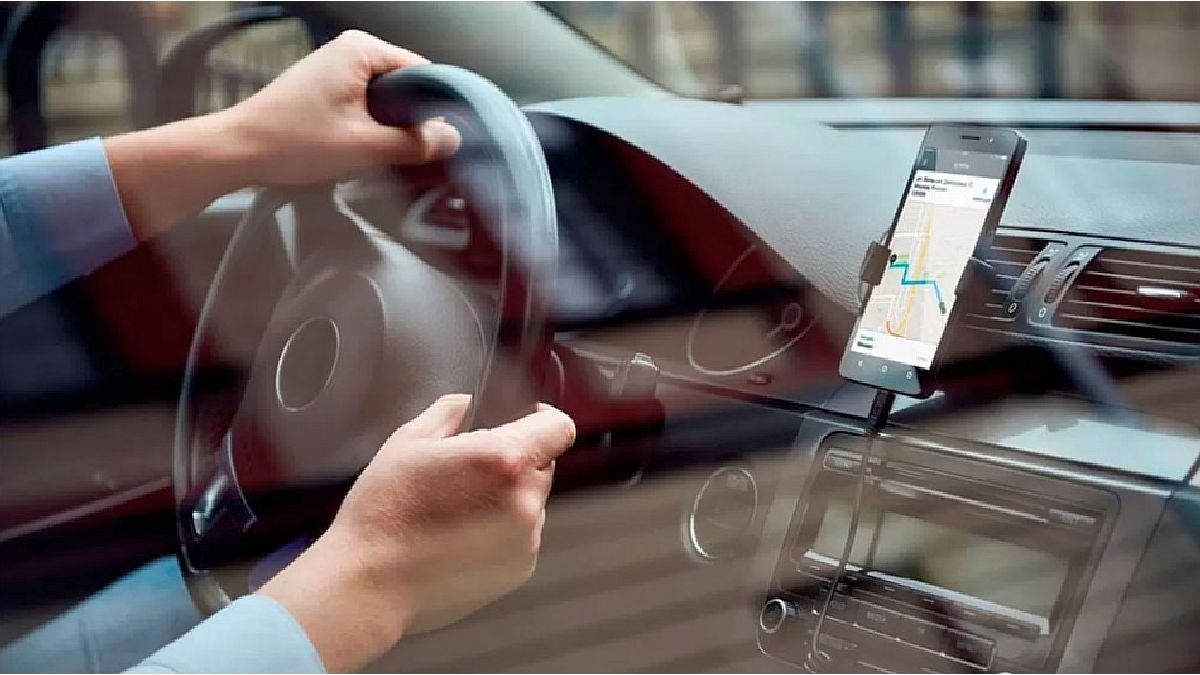In Article 19, it establishes that “in the public access spaces of all ports, airports and national aerodromes They will be able to enter for the pick-up and drop-off of passengers. and its transportation to any destination rental services with taximeters enabled in any jurisdiction and the vehicles of any type of transportation service provider company passenger car, whether contracted traditionally or through the use of digital platforms”.
At the same time, it adds that “the AIRPORT SECURITY POLICE and the ARGENTINE NAVAL PREFECTURE, as they are the authorities in charge of security and order within the jurisdictions of airports and ports, must be responsible for guaranteeing access and security of the service providers involved in the present”. In this way, although the platforms could operate at the Airport, they had a specific place to drop off passengers. This allows them to have access to the same place as taxis. without restrictions.
Uber
Mobility platforms will be able to use the same space as taxis for loading and unloading passengers
Deregulation of medium and long distance transportation: what the DNU establishes
The National Government published today in the Official Gazette the decree by which medium and long distance Automotive Passenger Transportation services will be deregulated.
The measure will generate benefits for all actors in the sector, such as the creation of a new National Registry of Passenger Transportation, the free establishment of routes, schedules, prices and duration of services by carriers.
Promoted by the Ministry of Transportation of the Ministry of Economy and the Ministry of Deregulation and State Transformation, the new standard replaces the current one, which is more than 30 years old.
The goal of deregulation is achieve the liberalization and modernization of automotive passenger transport and its adaptation to current transport dynamics.
Along these lines, the National Registry of Passenger Transportation is created, with public access, free of charge and online, for greater convenience for the carrier, saving time in the management of bureaucratic procedures and greater transparency.
Companies and transporters that were already registered will not have to do so again. Yes, new ones must be registered and, once registered, they will automatically obtain authorization to operate after 5 days after registration, thus applying the new “Positive Silence” methodology already implemented by the Ministry of Deregulation and State Transformation.
In this way, when the administrative deadline for a procedure expires, it is granted and authorized to expedite the procedure and not harm the user. In all procedures, the security requirements already established in current regulations are maintained.
From this standard it will be possible freely establish routes, vehicles, schedules, prices, duration of services, and even passenger pick-up and drop-off points that are authorized by the respective local jurisdiction, which will generate a greater offer of services and price competition that will benefit both the user and the companies and transporters.
In turn, They will have to report the transport capacity, detailing the quantity and type of vehicle, number of seats, contracted insurance, the list of drivers to be assigned and information related to their driver’s licenses, the frequency of the declared services, the origin, intermediate stops and destination of the trip.
At this point, services that are not reported in the National Passenger Transport Registry cannot be offered to the public.
The authority for applying this measure will be Secretary of Transportation of the Nation from the Ministry of Economy and will begin to be implemented in 60 days, when the necessary technological updates are made.
Source: Ambito
I am an author and journalist who has worked in the entertainment industry for over a decade. I currently work as a news editor at a major news website, and my focus is on covering the latest trends in entertainment. I also write occasional pieces for other outlets, and have authored two books about the entertainment industry.




